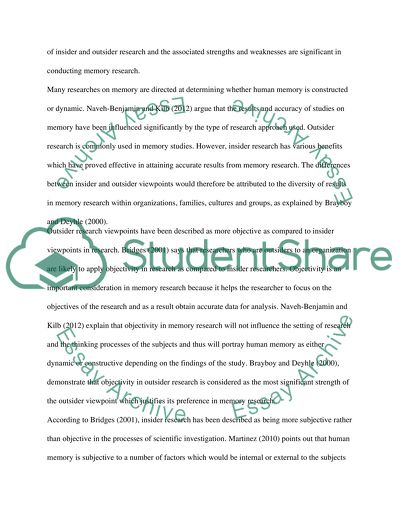Cite this document
(“Memory Research Viewpoints Essay Example | Topics and Well Written Essays - 1500 words”, n.d.)
Retrieved de https://studentshare.org/psychology/1445155-memory-research-has-traditionally-been-conducted
Retrieved de https://studentshare.org/psychology/1445155-memory-research-has-traditionally-been-conducted
(Memory Research Viewpoints Essay Example | Topics and Well Written Essays - 1500 Words)
https://studentshare.org/psychology/1445155-memory-research-has-traditionally-been-conducted.
https://studentshare.org/psychology/1445155-memory-research-has-traditionally-been-conducted.
“Memory Research Viewpoints Essay Example | Topics and Well Written Essays - 1500 Words”, n.d. https://studentshare.org/psychology/1445155-memory-research-has-traditionally-been-conducted.


